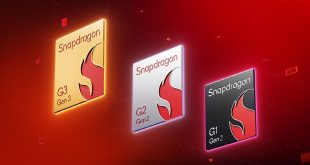Google have been under some criticism lately from various corners with many saying that they are trying to lock down Android to become less and less an ‘open source' project.
Andy Rubin, the head of the mobile software team said that he and the company are still committed to keeping it an open source project. A certain backlash happened after Google delayed the release of Honeycomb into the open source until a version of the software that works on phones is ready. Honeycomb was introduced in February and is already shipping on the Motorola Xoom, but Google are saying that the company have taken shortcuts to get the tablet operating system to market.
Rubin said in a blog post “As I write this the Android team is still hard at work to bring all the new Honeycomb features to phones. As soon as this work is completed, we'll publish the code. This temporary delay does not represent a change in strategy.”
He has acknowledged that there are some limitations in place and forced on partners who want to ship devices with Google applications of access to the Android Market, but this is to ensure compatibility. This is nothing new, and they have been in place since Android started.
Rubin's blog post was dramatically called ‘I think im having a Gene Amdahl moment'. Which is a reference to when Amdahl left IBM to found his own company – he was a victim of negative commentary from his rivals.
Rubin, the Google Android chief posted:
Recently, there's been a lot of misinformation in the press about Android and Google's role in supporting the ecosystem. I'm writing in the spirit of transparency and in an attempt to set the record straight. The Android community has grown tremendously since the launch of the first Android device in October 2008, but throughout we've remained committed to fostering the development of an open platform for the mobile industry and beyond.
We don't believe in a “one size fits all” solution. The Android platform has already spurred the development of hundreds of different types of devices–many of which were not originally contemplated when the platform was first created. What amazes me is that even though the quantity and breadth of Android products being built has grown tremendously, it's clear that quality and consistency continue to be top priorities. Miraculously, we are seeing the platform take on new use cases, features, and form factors as it's being introduced in new categories and regions while still remaining consistent and compatible for third-party applications.
As always, device makers are free to modify Android to customize any range of features for Android devices. This enables device makers to support the unique and differentiating functionality of their products. If someone wishes to market a device as Android-compatible or include Google applications on the device, we do require the device to conform with some basic compatibility requirements. (After all, it would not be realistic to expect Google applications–or any applications for that matter–to operate flawlessly across incompatible devices). Our “anti-fragmentation” program has been in place since Android 1.0 and remains a priority for us to provide a great user experience for consumers and a consistent platform for developers. In fact, all of the founding members of the Open Handset Alliance agreed not to fragment Android when we first announced it in 2007. Our approach remains unchanged: there are no lockdowns or restrictions against customizing UIs. There are not, and never have been, any efforts to standardize the platform on any single chipset architecture.
Finally, we continue to be an open-source platform and will continue releasing source code when it is ready. As I write this the Android team is still hard at work to bring all the new Honeycomb features to phones. As soon as this work is completed, we'll publish the code. This temporary delay does not represent a change in strategy. We remain firmly committed to providing Android as an open-source platform across many device types.
The volume and variety of Android devices in the market continues to exceed even our most optimistic expectations. We will continue to work toward an open and healthy ecosystem because we truly believe this is best for the industry and best for consumers.
 KitGuru KitGuru.net – Tech News | Hardware News | Hardware Reviews | IOS | Mobile | Gaming | Graphics Cards
KitGuru KitGuru.net – Tech News | Hardware News | Hardware Reviews | IOS | Mobile | Gaming | Graphics Cards




I think its only fair they put in a routine to ensure some kind of quality control, after all their name is involved. make sense.